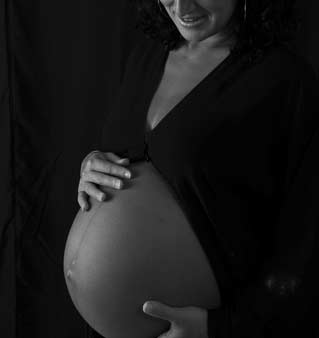Perfectionists At Risk for Postpartum Depression

Get the world’s most fascinating discoveries delivered straight to your inbox.
You are now subscribed
Your newsletter sign-up was successful
Want to add more newsletters?

Delivered Daily
Daily Newsletter
Sign up for the latest discoveries, groundbreaking research and fascinating breakthroughs that impact you and the wider world direct to your inbox.

Once a week
Life's Little Mysteries
Feed your curiosity with an exclusive mystery every week, solved with science and delivered direct to your inbox before it's seen anywhere else.

Once a week
How It Works
Sign up to our free science & technology newsletter for your weekly fix of fascinating articles, quick quizzes, amazing images, and more

Delivered daily
Space.com Newsletter
Breaking space news, the latest updates on rocket launches, skywatching events and more!

Once a month
Watch This Space
Sign up to our monthly entertainment newsletter to keep up with all our coverage of the latest sci-fi and space movies, tv shows, games and books.

Once a week
Night Sky This Week
Discover this week's must-see night sky events, moon phases, and stunning astrophotos. Sign up for our skywatching newsletter and explore the universe with us!
Join the club
Get full access to premium articles, exclusive features and a growing list of member rewards.
New mothers who think they should be perfect parents might be at risk for postpartum depression, a new study suggests.
The results show that a type of perfectionism in which individuals feel others expect them to be perfect, known as "socially prescribed perfectionism," is associated with postpartum depression for first-time mothers.
The study is one of the first to look how perfectionism affects women's ability to adjust to life after childbirth. It involved 100 first-time mothers in Toronto, Canada, who filled out questionnaires to assess their level and type of perfectionism as well as feelings of depression.
The link between perfectionism and postpartum depression was strongest amongst those who try to deal with perfectionism by appearing as if they don't have a problem.
"What this suggests is that there might be some new mothers out there who might seem like everything is fine, in fact it might seem like everything is perfect," said Gordon Flett, a professor of psychology at York University in Canada. "[But] in fact it's just the opposite, that they're feeling quite badly but they're pretty good at covering it up."
This finding is particularly concerning, because it means friends and family might not realize their loved one is suffering from depression.
"This tendency to put on this front usually means that people don’t tell other people when they're doing badly, so somebody might not know that a young women is having difficulty; they might have no clue whatsoever," Flett said. "And there's sadly some cases where the family says 'We thought everything was fine,' and the next thing we know, the person is no longer with us," he said.
Get the world’s most fascinating discoveries delivered straight to your inbox.
The results underscore the need to dispel the myth of the "perfect parent," Flett said.
"I think it's just important for new mothers and fathers to just realize, ’Hey, you haven't got a lot of experience with this, you don’t' need to be perfect, you don’t need to be absolutely the best parent in the world,’" Flett said. "You need to just be able to experience the role, do your best, and your best is good enough."
But if these perfectionistic mothers tend to hide their depression, how can friends and physicians identify that there's a problem?
One clue might be when a woman appears to be adjusting a little too well to her new life as a mother — someone who "appears to be making [the situation] much more rosier than it is, who seems to be doing absolutely amazingly well with this transition," Flett said.
The key is to try to get new mothers to speak about their experience in realistic terms as opposed to just saying what they think people want to hear.
The issue could also be addressed through classes for parents-to-be, Flett said. "They could very easily incorporate an emphasis on not wanting to be perfect, and to not be too hard on yourself as you're making the transition," he said.
The results were presented May 30 at the Association for Psychological Science Convention in Boston.
- Top 5 Myths about Women's Bodies
- 7 Thoughts That Are Bad For You
- Why New Moms Get 'Baby Blues'

Rachael is a Live Science contributor, and was a former channel editor and senior writer for Live Science between 2010 and 2022. She has a master's degree in journalism from New York University's Science, Health and Environmental Reporting Program. She also holds a B.S. in molecular biology and an M.S. in biology from the University of California, San Diego. Her work has appeared in Scienceline, The Washington Post and Scientific American.
 Live Science Plus
Live Science Plus










